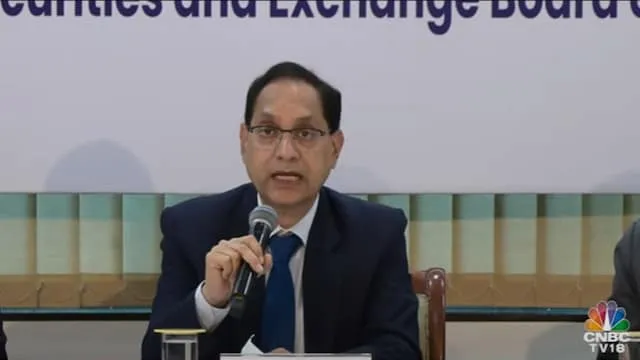SEBI Chief Announces Review of Short Selling and Mutual Fund Frameworks

The Securities and Exchange Board of India (SEBI) is set to conduct a thorough assessment of its short selling practices and the Securities Lending and Borrowing (SLB) framework, both of which have not seen significant changes since their introduction nearly two decades ago. Tuhin Kanta Pandey, the Chairman of SEBI, made this announcement during the Global Leadership Summit 2025, hosted by CNBC-TV18.
Pandey indicated that the short selling framework was established in 2007 and has remained static since, while the SLB mechanism was introduced in 2008 with minor modifications over the years. He noted that these frameworks are significantly underutilised compared to similar systems in other countries.
"The framework for short selling was introduced in 2007 and has remained unchanged since then. The SLB system was designed to facilitate short selling and prevent settlement failures, but it is still largely unexploited," said Pandey. He added that a working group will soon be established to comprehensively review these regulations.
Under the current short selling framework, naked short selling is prohibited. This practice involves selling securities that the seller does not own or has not borrowed. All investors are required to meet their obligations to deliver securities during settlement. Additionally, institutional investors are not permitted to close short selling positions within the same trading day, and their transactions must be settled on a gross basis at the custodian level.
The SLB framework, designed to facilitate short selling, is managed by clearing corporations to prevent settlement failures.
In a related development, Tuhin Kanta Pandey also addressed the mutual fund sector, highlighting that despite reaching a record in assets under management (AUM), household participation remains limited. As of September, the mutual fund industry’s AUM surpassed ₹75 trillion, with monthly systematic investment plan (SIP) flows nearing ₹30,000 crore.
However, data from SEBI’s latest investor survey revealed that while 53% of households are aware of mutual funds, only 6.7% actually engage with them, indicating a significant opportunity for growth. Pandey pointed out that the mutual fund AUM is still below 25% of India’s GDP, which is considerably lower than the 80% average seen in developed nations.
"We see mutual funds as one of the largest growth opportunities in the market. Our aim is to double the investor base within the next five years, focusing on both inclusion and maintaining trust," he stated.
He noted a disparity in participation rates, with urban areas seeing 15% engagement in securities markets compared to just 6% in rural regions. New educational campaigns will target a diverse audience, utilising digital and traditional media.
Regarding regulatory measures, Pandey addressed the need for a balance between managing costs and ensuring transparency. He affirmed that the caps imposed on mutual funds are ceilings, not limits, and discussions are ongoing about their adequacy.
Moreover, he emphasised the importance of financial inclusion for women, stating that initiatives have been introduced to increase the onboarding of women investors and those from smaller cities.
Pandey also highlighted the regulator's efforts to combat fraudulent schemes and misinformation online, noting that over 100,000 misleading social media posts have been flagged for removal.
In conclusion, Tuhin Kanta Pandey reiterated that investor education is crucial for fostering a secure and inclusive market environment. The SEBI chief stated that trust and participation are essential to the future growth of India’s capital markets.
He remarked, "Mutual funds must be products that retail investors can trust," underscoring the role of these financial instruments in the broader economic landscape.

China's Fujian Aircraft Carrier Enters Service Amid Naval Expansion

Amit Shah Warns Bihar Voters Against Opposition in Election Rally

Concerns Grow Over AI Stock Valuations in India Amid Global Sell-Off

New US Visa Guidelines Impact Applicants with Health Conditions





